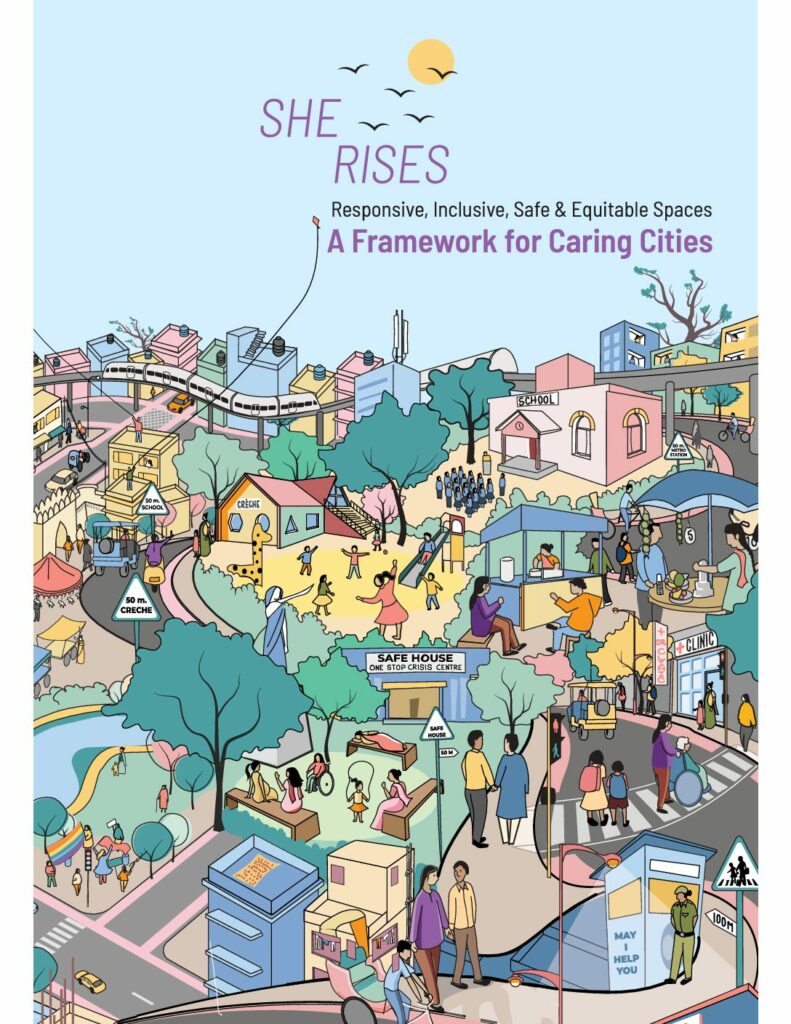Patriarchy places the burden of care primarily upon women. This includes the care of vulnerable and excluded groups like children, elderly and people with disabilities. It is therefore important to acknowledge the care economy when we speak of “inclusive” cities. Otherwise, inclusion is stripped of social and political implications.
Whilst inclusion aims to bring a diverse set of voices to urban design and planning, it is the recognition of how the care economy supports and subsidises the state, market as well as the family that will lead to more equitable urban policies and practices.
This document unpacks the elements of a city that places the economics and ethics of care at the centre. The framework addresses a range of dimensions of city life from the perspective of women. Safetipin’s work over the past decade has focused on designing and planning safer and more inclusive spaces, with a focus on mobility for women, using a data-driven approach. This approach has generated robust datasets that have resulted in interventions in cities across India and other cities in Asia, Africa, and Latin America. The framework builds upon the learning from these projects and research to propose a comprehensive approach towards the gender transformation of our ities.
